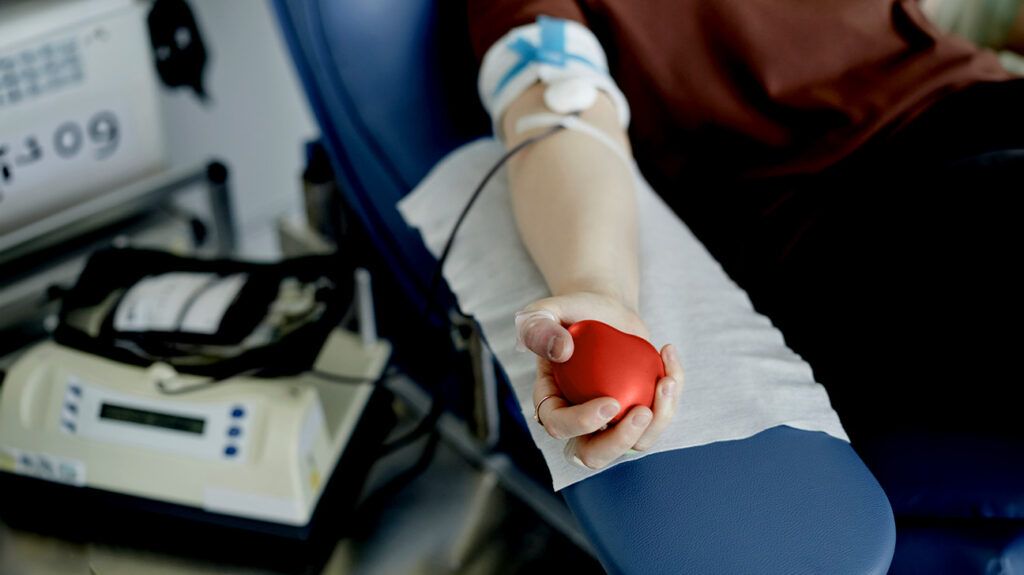People with human papillomavirus (HPV) can donate blood if they meet the other eligibility requirements, which cover recent infections, recent travel, and their weight.
Donating blood is a valuable and potentially life-saving act. However, some health conditions can affect eligibility, including certain cancers, HIV, and hepatitis.
HPV is a common viral infection, and nearly all sexually active individuals contract the virus at some point. People with HPV can donate blood, as the infection is not a cause for deferral if the individual feels healthy and meets all other eligibility requirements.
This article explores the considerations of blood donation for individuals with HPV.

Generally, people with HPV can donate blood. HPV infection alone is typically not a disqualifying factor for blood donation.
Most blood donation centers prioritize overall health and safety rather than specific viral infections. However, donation eligibility criteria may vary by region and blood bank, so people need to check with their local donation center for specific guidelines. A person may need to wait a certain amount of time following treatment for an infection before donating blood.
Being transparent about health history during the pre-donation screening process is crucial for the health and safety of everyone involved.
Donating blood with HPV generally poses minimal risks. Healthcare professionals do not routinely screen for HPV during the donation process, and the virus is not known to spread through blood transfusions.
That said,
Furthermore, if a person has HPV-related health issues or complications, such as certain cancers, it could affect eligibility. People can consult with their healthcare professional before donating blood.
Blood donation centers have stringent safety measures in place to ensure the safety of both donors and recipients.
They screen the donated blood for multiple disease markers, including:
- HIV
- hepatitis B and C
- human T-lymphotropic virus
- syphilis
- West Nile virus
The standard tests do not cover HPV, as the infection
While HPV infection alone does not typically disqualify healthy individuals from blood donation, several other factors can affect eligibility.
These factors
- recent travel to certain regions with endemic diseases such as malaria or dengue fever
- weighing under 50 kilograms (110 pounds)
- having a recent cold, flu, sore throat, cold sore, or any other infection
- having a recent tattoo or body piercing
- having low hemoglobin levels
- engaging in sexual activity that may have harmful effects in the past 12 months
Following pregnancy, people should not donate blood for a certain period equal to the length of the pregnancy. Those who are nursing should not donate blood until 3 months after the baby receives most of their nutrition from solids or bottle feeding.
Additionally, people must wait at least 24 hours following minor dental work and 1 month after major procedures.
If a person has concerns about their eligibility to donate blood due to HPV or related health issues, they can consult a healthcare professional. Doctors can provide personalized guidance according to their medical history and current health status.
Here are some questions to consider:
- Can I donate blood if I have HPV?
- Are there any specific eligibility criteria for donating blood I should be aware of?
- If I have had HPV-related health issues in the past, does that affect my eligibility to donate blood?
- Are there any associated risks or considerations for blood donation related to my HPV infection?
- Should I inform the blood donation center about my HPV status during the pre-donation screening process?
- What is the standard procedure for blood donation at my local donation center, and how can I best adhere to their guidelines?
In most cases, individuals with HPV can donate blood if they meet the general eligibility criteria for blood donation and are in overall good health.
HPV infection itself is not a disqualifying factor for blood donation, and the associated risks are minimal.
However, people must adhere to the guidelines from their local blood donation center. They should also be transparent about their health history during the pre-donation screening process to ensure the safety of donated blood and recipients.
They also need to speak with their local donation center or their healthcare professional about any questions and concerns they may have about donating blood.
